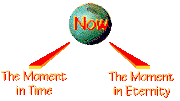SmartMoney.com interviewed me this week for their article Web Sites Find Security Seals a Boon for Business. The article talks about ways online merchants, specifically small businesses, can use security seals to legitimize their websites in the eyes of potential customers.
It occurred to me that displaying seals doesn’t change how a website operates; the seals are all about marketing. They’re all about playing the game of looking legitimate to potential customers.
In this case, standards and seals are a good thing: they allow people to quickly verify if a website uses SSL or is reasonably “hacker safe.” This is helpful when you’re shopping for that antique Platypus Beanie Baby and wind up on a site you’ve never heard of. Seeing the Verisign seal probably gives you a bit of warm fuzziness.
Standards
In high school you may have worked your butt off for grades or a good score on the SAT (a standardized test taken by high school seniors in the U.S.). The fact is, you were smart whether or not you did these things, but you had to do them to prove it. You may not have realized, but you were marketing yourself to colleges. And the best way to do this is to fit their mold of standardized tests and grades; to play the game.
When you go to a job interview you already know you can do the job. The entire process of creating a resume, making it look pretty, putting on a suit, using your best manners, and writing code on a white board is all packaging. It’s not really you; it’s the best possible view of you that you bring to the game.
I have a friend who is a fantastic developer (I mean it; he’s top-notch). But he has trouble finding contract work. All of the online marketplaces are filled with commodity development shops. The temp houses take a huge cut and are always trying to beat down his rate. So a guy who’s worth $100+/hour winds up making $70. He’s worth more, but he hasn’t figured out how to differentiate himself from every other developer in the universe.
Self-Marketing Rule #1: It’s a sad statement, but even from early on in your career, knowing how to market yourself will do more for your earnings and reputation than becoming better at what you do. This is not a license to be a crappy developer, but an imperative to become a better self-marketer.
The Basics
Self-marketing, also known by the more sinister name “self-promotion,” works wonders for both salaried employees and freelancers. In both cases the bigger your name, the more recognition you’ll receive from those around you, the more money you will make, and the more opportunities that will come your way.
I receive a lot of email asking how to get a raise, and how to get around the developer salary cap, and here’s the simple answer: set yourself apart.
Here are a few approaches to doing that; there are certainly more (please post a comment with your ideas):
- Get Certified. A good first step.
- Write technical articles. Print or online; it doesn’t matter. Scott Mitchell and Rocky Lhotka have built careers using this approach in the .NET world.
- Speak. Start by speaking at local developer events.
- Blog. Joel Spolsky is the poster child for making a name for yourself as a blogger.
- Win Awards. Microsoft’s MVP and ASPInsider awards come to mind. I’m not sure if there are equivalents on the Java/PHP side.
- Contribute to Open Source Projects. Nothing is more impressive than saying you implemented feature X in a popular blogging engine.
- Release your own free applications or utilities. Have you heard of LINQPad or Reflector? Suffice to say these developers have earned major clout in their circles.
Self-Marketing Rule #2: Start now. It will take a long time to get going (think years, not months), and the sooner you start the sooner you’ll reap the rewards.
A New GameThe approaches I mentioned above are good to know when you’re starting out in the game of self-marketing. But some people don’t play the game at all. They re-write the rules to create a new one.
A girl from my high school didn’t get her diploma because she refused to take P.E. (Physical Education), but she was a science prodigy and was accepted to M.I.T. She knew how to market herself using her substantial accomplishments (inventions, awards, articles, etc…), and M.I.T. saw her as an exceptional candidate even though she didn’t meet the basic requirement every guidance counselor tells you about. She refused to play the grades/SAT/diploma game and decided to make up her own rules.
Fog Creek Software makes millions annually selling bug tracking software. Are they the best bug tracking application available? I don’t really know. But it isn’t about being the best, it’s about marketing. And Joel knows a lot about marketing (he doesn’t admit this, instead saying he stumbled into the popularity of his blog).
These days everyone has a blog to promote their software, but when he started Joel on Software back in March of 2000, Joel was inventing a new form of self-marketing. Intentional or not, writing his own rules has made Fog Creek an incredibly profitable company.
Self-Marketing Rule #3: If you have an exceptional talent, market yourself through exceptional means. Don’t play the game everyone else is playing.
Last time I checked, Fog Creek Software didn’t have a Verisign seal on their website.


